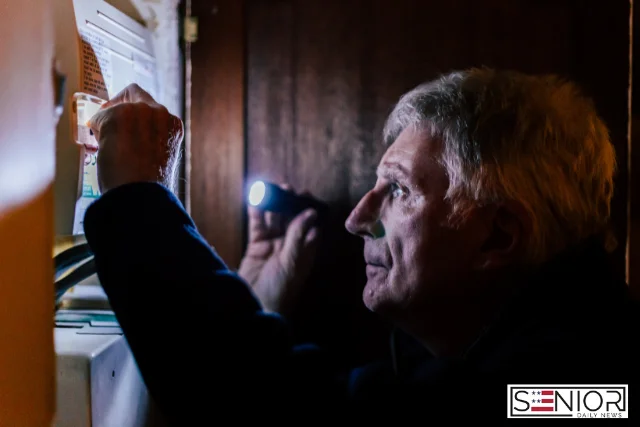Power Outage Survival Guide: Tips to Stay Safe in an Emergency

When the lights suddenly go out, life can feel unsettling, especially for seniors who may depend on electricity for medical devices, heating, or simply daily comfort. A power outage can happen at any time—whether from storms, grid failures, or planned maintenance—and being prepared makes all the difference. For older adults living in the United States, safety, comfort, and clear planning are the keys to handling these situations smoothly. This survival guide offers practical tips to help seniors and their families stay safe, calm, and well-prepared during a power outage.
Why Preparation Matters
A power outage is more than just an inconvenience. Without electricity, food can spoil, phones may lose charge, and essential devices like oxygen machines or powered medical beds may stop working. Seniors, in particular, face unique risks such as difficulty moving in the dark, health complications from heat or cold, and the emotional stress of feeling isolated. Taking steps ahead of time ensures that when an outage occurs, you can manage with confidence rather than panic.
Build an Emergency Kit
One of the most effective ways to prepare for a power outage is to have an emergency kit ready. Seniors should keep this kit in an easy-to-reach location, ideally a closet or cabinet near the main living area. Essentials include:
- Flashlights and extra batteries (avoid relying on candles, which pose fire risks)
- A battery-powered or hand-crank radio for weather updates
- First aid supplies and personal medications stored in waterproof containers
- Bottled water (at least one gallon per person per day for three days)
- Non-perishable foods such as canned goods, granola bars, and peanut butter
- Manual can opener
- Warm blankets, extra clothing, and socks
- A small supply of cash, since ATMs and credit card machines may not work
Having this kit assembled before an outage ensures peace of mind and reduces stress when the lights go out.
Keep Medical Needs in Mind
For seniors who rely on powered medical devices, planning is especially important. Contact your doctor or medical supplier to ask about battery backups or alternative power options. Some utility companies in the U.S. offer priority restoration or registration programs for medically dependent customers, so it’s worth signing up if eligible. Keep a written list of medications, emergency contacts, and insurance information in your emergency kit. Seniors who use refrigerated medications like insulin should store them in insulated coolers with ice packs in case of prolonged outages.
Staying Warm or Cool Without Power
A power outage often means losing heating or air conditioning, which can be dangerous for seniors. In winter, dress in layers, wear hats indoors, and close off unused rooms to conserve heat. Place towels at the bottom of doors to keep cold air out. In summer, stay hydrated, use battery-operated fans, and avoid strenuous activity. If temperatures become extreme, consider going to a designated cooling or warming center in your community. Many towns and cities in the United States open such centers during emergencies.
Stay Connected and Informed
Communication is critical during a power outage. Keep your cell phone charged and consider purchasing a portable power bank for backup. If you have a landline, make sure you have a corded phone, as cordless phones usually don’t work without electricity. Stay informed by listening to a battery-powered radio for updates from local authorities. If you live alone, make arrangements with a trusted neighbor or family member to check in on each other during outages.
Food and Water Safety
Food safety becomes a major concern during extended outages. Keep refrigerator and freezer doors closed as much as possible to maintain cold temperatures. A refrigerator will keep food cold for about four hours without power, and a full freezer can last up to 48 hours if unopened. Discard perishable items if the temperature rises above 40°F for more than two hours. Seniors should avoid “testing” food by taste—when in doubt, throw it out. It’s safer to rely on canned or shelf-stable foods until power returns.
Lighting Your Home Safely
While candles may seem like an easy solution, they present fire hazards, especially for seniors who may accidentally knock them over. Instead, use flashlights, battery-powered lanterns, or even solar lights that charge during the day. Keep lights within easy reach of beds and favorite chairs so they’re accessible when needed.
What to Do Immediately During a Power Outage
When the power goes out, follow these immediate steps:
- Check if the outage is just in your home or throughout the neighborhood.
- Report the outage to your utility company. Many companies in the U.S. have automated hotlines or mobile apps for quick reporting.
- Turn off or unplug appliances and electronics to prevent power surges when electricity is restored.
- Use flashlights for light instead of candles.
- Stay calm and rely on your emergency kit for essentials.
Planning for Long Outages
Sometimes outages last longer than expected, especially after storms. Seniors should have a plan for extended situations. This might include:
- Identifying nearby friends, family, or shelters where you can go if staying home isn’t safe.
- Arranging transportation options in advance, especially if you don’t drive.
- Having extra medical supplies, such as oxygen tanks or prescription refills.
- Keeping important documents (IDs, medical cards, insurance papers) in a waterproof folder for quick access if you need to relocate.
Recovery After the Power Returns
Once electricity is restored, take a few steps to get back to normal safely. Check all appliances and reset clocks, medical devices, and security systems. Replenish supplies used during the outage so you’re prepared for next time. Review what worked and what didn’t in your plan—then make improvements for the future.
FAQs About Power Outages
1. How long can refrigerated food last during a power outage?
Refrigerated food lasts about four hours if the door stays closed. A full freezer can keep items safe for up to 48 hours without power.
2. What should seniors do if they rely on electric medical equipment?
Contact your utility company to register for medical priority service and ask your doctor about backup batteries or alternatives. Always keep emergency numbers handy.
3. Are candles safe to use during a power outage?
It’s better to avoid candles due to fire risks. Use flashlights, battery-powered lanterns, or solar lights instead.
4. How can I stay cool in the summer if the power goes out?
Drink water, stay in shaded or lower levels of your home, and use battery-operated fans. If it gets dangerously hot, head to a public cooling center.
5. What is the first thing I should do when the lights go out?
Check whether the outage is in your home or the neighborhood, report it to the utility company, and then rely on your emergency kit for essentials.
6. Should seniors prepare differently than younger people for outages?
Yes. Seniors should consider mobility challenges, medical needs, and comfort. Having a plan for medications, medical devices, and safe lighting is especially important.
Image Source: Canva





